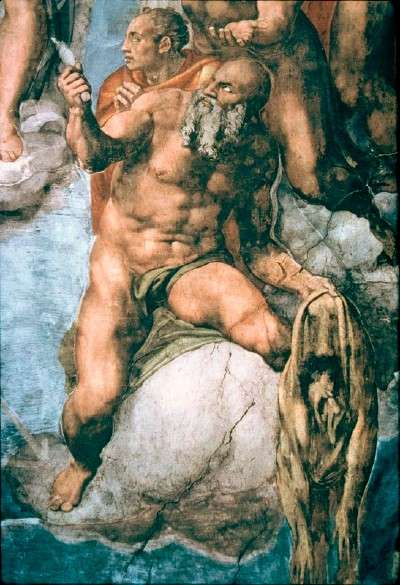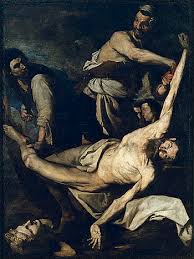A blessed feast of Saint Bartholomew, to one and all! Like many of the Apostles, we don’t know all that much about the life of today’s saint. Our Tradition identifies Bartholomew with the ‘Nathaniel’ – which means ‘God has given’ – the enigmatic figure in the first chapter of Saint John’s Gospel.
When the Apostle Philip approached Nathaniel, declaring that he had found the One Who fulfilled the Old Testament prophecies, of whom Moses spoke, ‘Jesus of Nazareth’, the same Nathaniel replied with the question – which may be applied to any number of backwater villages across the world – ‘Can anything good come from Nazareth?’.
But along he went with Philip, and when Christ saw Nathaniel, He declared him to ‘be without guile (dolos, in Greek)’. Nathaniel was taken aback: How do you know me? Christ opaquely replied that He had seen him ‘under the fig tree’. Whatever happened under said tree, Nathaniel then makes what seems like a metaphysical quantum leap: ‘Thou art the Son of God, thou art the King of Israel‘!, echoing the confession of Faith of his fellow Apostles Peter and, later, Thomas. From whatever motive, Bartholomew-Nathaniel seems to have been converted then and there. Perhaps it was his very lack of guile, or deceit, that allowed him to be so transparent to the supernatural, and amenable to the transcendent truth of Who Christ was, and is.
Tradition has it that Bartholomew preached the Faith all the way to India and Armenia, converting the people and their king, whose brother, resisting conversion, ordered the Apostle’s execution by the horrific method of being flayed alive and crucified upside down. Hence, Bartholomew is often depicted in art holding his own skin in hand, as seen below in Michelangelo’s Last Judgement; the face on the skin is the artist’s own, signifying what, we may only wonder. It is on this legend that Bartholomew was adopted as the patron of leatherworkers; our Catholic faith is nothing if not incarnate.
The Church needs the courage, wisdom and boldness of the Apostles in this increasingly secular age, to face whatever sufferings witnessing to the Truth may bring. God give the grace. May our eyes, like Bartholomew’s, be turned ever-more towards heaven, and the God Who is the end of all our striving.

Saint Bartholomew, ora pro nobis!









